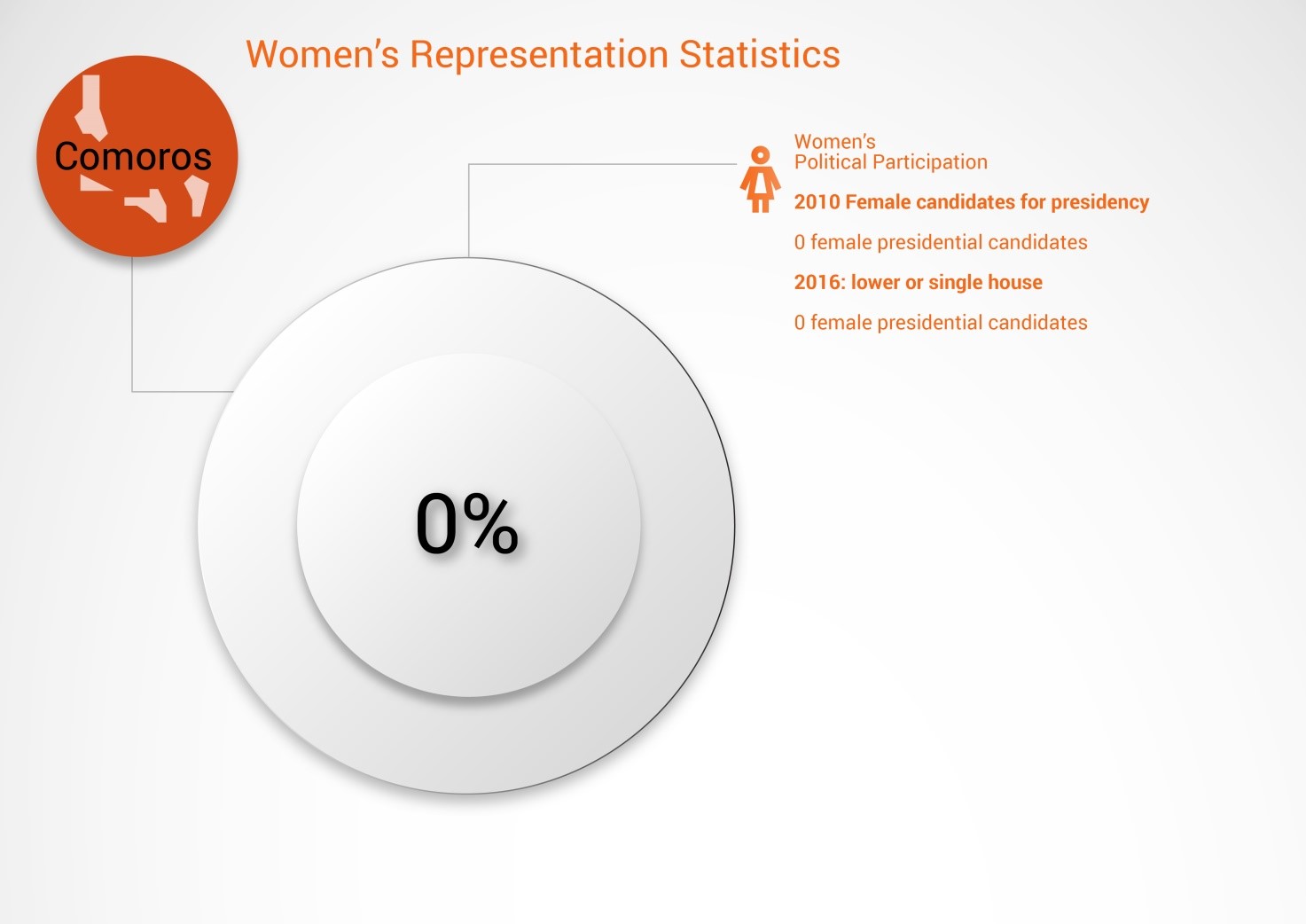2016 Elections Monitoring
The Comoros or, as formally known, the Union of Comoros, held the first and second round of the presidential elections on 21 February 2016 and 10 April 2016.
The voter turn-out was 64% in the first round and Mohamed Ali SOILIHI obtained 17.61% of the vote, followed by Mouigni Baraka Said SOILIHI with 15.09% and Colonel Azali ASSOUMANI with 14.96%. The three candidates competed for the second round in which Azail ASSOUMANI obtained 41% of the vote, Mohamed Ali SOILIHI 39.9% and Mouigni BARAKA 19.1%.The results of the elections were not immediately validated, as the polls had to be rerun on 11 May due to reported voting irregularities and violence. Finally, Assoumani was declared the winner of the presidential elections.
In Comoros, the president is directly elected by simple majority popular vote in two rounds for a single non-renewable 5-year term. In the first round, three candidates with the highest vote on the island concerned compete in the second round; then, in the second round, the winner is determined by simple majority vote by voters on all three islands.
The Country went through a period of high instability since it gained independence from France in 1975. Finally, 2006 marked the year of the first democratic presidential elections, but a de-facto secession of Anjouan from the Union of Comoros plunged the country into a political crisis that required the intervention of the African Union. The situation had settled in 2006 when Ikililou Dhoinine won the most peaceful presidential election that the Island has probably ever seen until then.
Women's Political Participation
Amid the half-dozen candidates running in the first round, there was also a woman Youssouf Abdou MOINAECHA who is the second woman in the history of the islands to run for president. Moinachea, the only female candidate for the presidency, said it was time for a woman to lead the archipelago and during her campaign she advocated for a change for Comorian women. Unfortunately, Moinachea did not make it to the second round as she obtained less than 2% of the vote, like her predecessor in the last presidential elections, Zaharia Said Hamed who participated in the 2010 elections and ended up obtaining less than 1% of the vote.
Comoros has been named “the best Arab state for women” by a Thomson Reuters Foundation Poll. Its first place on the podium is due to the political and economic rights granted to women. Thus, according to a “Gender Profile of the Union of the Comoros” compiled by the African Development Bank it is stated that “The Comorian Government recognises the importance of gender mainstreaming and full participation of women in the development process as a means of reducing poverty and boosting the country’s economic development […]and it affirms its determination to give women their rightful place in the decision-making and development process”. Nonetheless, Comoros ranks 182th in the classification “Women in National Parliament” compiled by the Inter-Parliamentary Union with only the 3% of women elected in the past legislative elections, which means that there is only 1 female member out of 33 as there is no gender quota system in the country.
Comorian law provides for equality of persons and, in general, inheritance and property rights practices do not discriminate against, but rather favor, women. Societal discrimination against women is most apparent in rural areas, where women were mostly limited to farming and child-rearing duties, with fewer opportunities for education and wage employment. In urban areas growing numbers of women are employed and generally earn wages comparable with those of men engaged in similar work.
Conclusion
The Union of Comoros is gradually coming out of a prolonged period of political and institutional instability (1997-2007) which resulted in the suspension of country’s prosperity. Accordingly, Comorian Government needs to implement several measures in order to mainstream gender issues especially when it comes to gender quotas and promote the full participation of women in the country’s development process.

